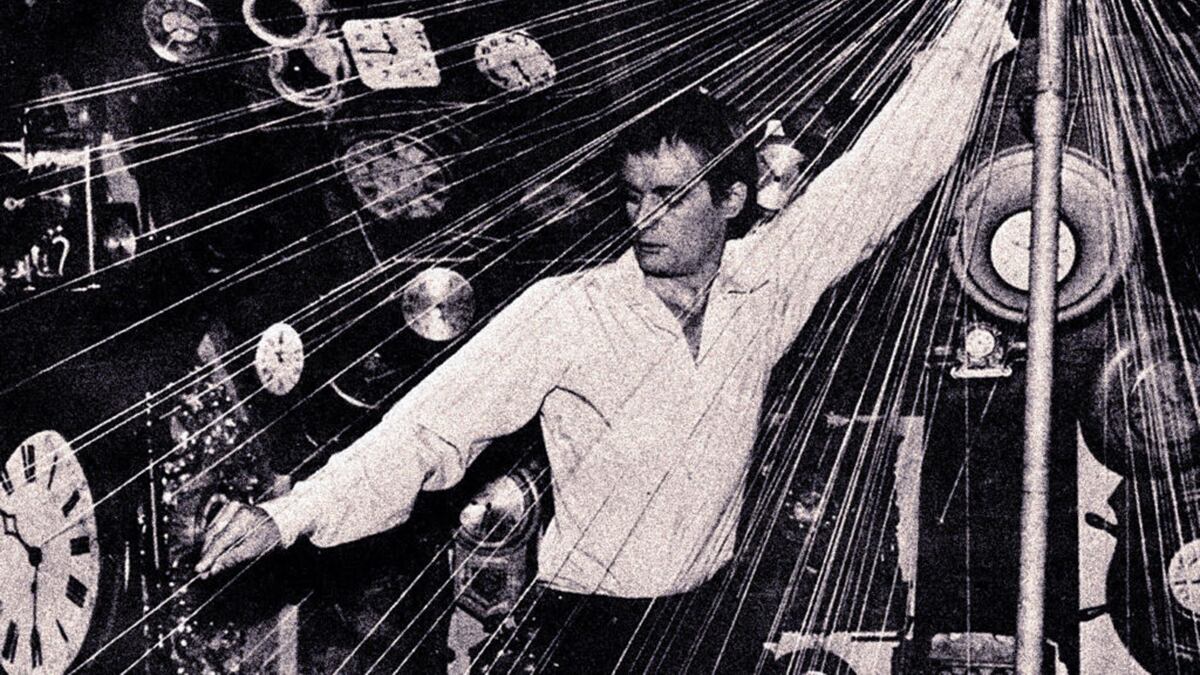In 2020, its first year under new direction, the Portland International Film Festival heralded a new mission: to be "unbound" from traditional cinematic conditions. In 2021, that undertaking is more requirement than choice.
"Obviously [last] year was very tough for all of us as human beings, let alone nonprofit organizations," says NW Film Center director Amy Dotson. "But it was also freeing. We took our own medicine."
The result is a hybrid event, trying to reach audiences (largely) at home. With over 75 films available to stream, the festival still offers diverse international fare. But there's also a physical presence at its Zidell Yards drive-in. In addition to screening high-profile new titles like Minari and old favorites like Iron Giant, the South Waterfront venue will host PIFF's second-annual Cinema Unbound Awards on March 4. These accolades aim to honor boundary-breaking artists, with a 2021 slate that includes Small Axe director Steve McQueen, Time filmmaker Garrett Bradley, Oregon film legend Gus Van Sant, Nomadland producer Mollye Asher, and ShadowMachine studio head Alex Bulkley.
In addition to helping raise PIFF's global profile, Dotson sees an emotional and artistic value in celebrating this caliber of artist—even if it's over Zoom or on an outdoor screen.
"There's a lot of good that comes from being inspired; it's kind of what we need right now," she says. "Portland is a space where art and cinema converge, and there aren't really a lot of people out there celebrating that [intersection]."
What's more, PIFF spotlights a broad spectrum of new work from Northwest artists. While we'll name our overall festival favorites in next week's Screener column, here's the best of what we saw from Oregon ahead of PIFF 44.
Spectral Transmissions: Ghosts of Futures Past
A line-blurring multimedia experience, Spectral Transmissions has rallied more than a dozen contributors, from beloved Portland musician Chanti Darling to acclaimed documentarian Kirsten Johnson. Structured like a golden age of radio broadcast by directors Michael Palmieri and Donal Mosher, the program reimagines the century-old idea of furtive communiqués—ghost stories, Cold War esoterica, and intimate voice messages—slipping through the cracks of mass media and haunting the hippocampus evermore.
Rehab Cabin
Portlander Kate Beacom is one half of the writing-directing team (with Louis Legge) behind this daring indie comedy in which two listless 20-somethings hope to rejuvenate their favorite former child actor's career through kidnapping and forced rehabilitation. It's a worthwhile addition to this winter's #FreeBritney-fueled reflections on celebrity exploitation while also never giving up the wicked nuttiness its premise requires.
Faces, Displays, and Other Imaginary Things
Woodrow Hunt's experimental short whisks away viewers on a filter-laden highway drive. A Klamath and Cherokee tribes descendant, Hunt cycles through simultaneously historical and futuristic perspectives on Indigenous lands, government propaganda, and mapmakers slathering their own filters atop the natural world. Faces is a standout, literalized example of PIFF's aim to let audiences "see differently."
Who's on Top?
George Takei narrates the trek of four queer-identifying Portlanders attempting to make the 5,000-foot climb to Mount Hood's summit. Director Devin Fei-Fan Tau creates ample room for heartfelt confessions and reclaiming mountain climbing as a space for all. But his documentary's ever-compelling ace in the hole is just how difficult it is to, you know, scale a mountain.
See Me
This 22-minute film from Artists Repertory Theatre observes the daily routines of three Black Portlanders living in isolation during the pandemic. A fascinating premise in itself—made during a year when Black lives took center stage in public spaces—See Me is an insightful depiction of private strength and the hour-by-hour battle to cultivate full experiences within crushing limitations. Moreover, in an age when pandemic films often lose the aesthetic fight against white walls and blue light, director Dawn Jones Redstone's film is richly lit and beautifully shot.
If you're looking for more Oregon films at PIFF 44, check out:
• The redemptive mother-son drama Barbie's Kenny.
• The lyrical 16 mm short Aquí, set at the Oregon Dunes.
• A Kaddish for Bernie Madoff, an obsessive yet introspective musical.
• The unsettling short Jean, on loneliness and repression run amok.
• La Tienda, an ode to two Chilean letterpress printers in Portland.
SEE IT: Access to Portland International Film Festival programming is available at cinemaunbound.org March 5-14. Festival passes cost $75-$350. Individual tickets are $9.
